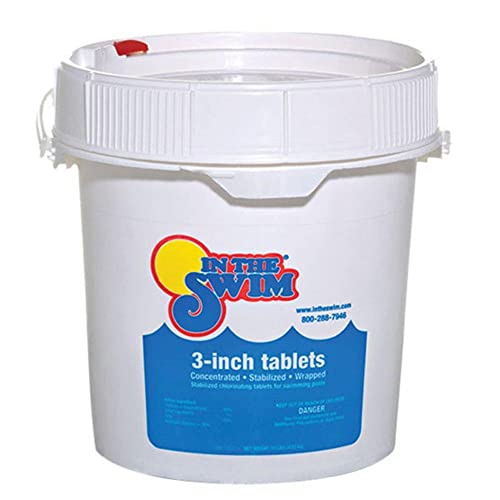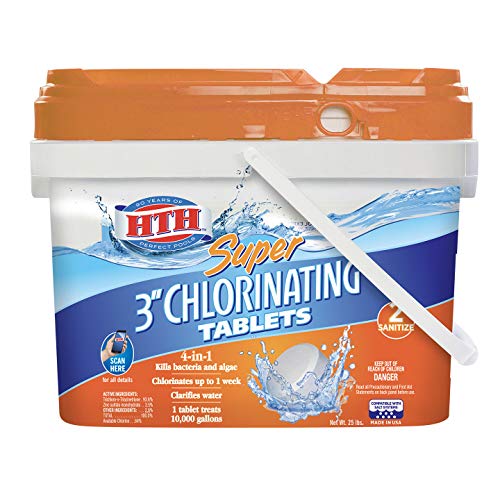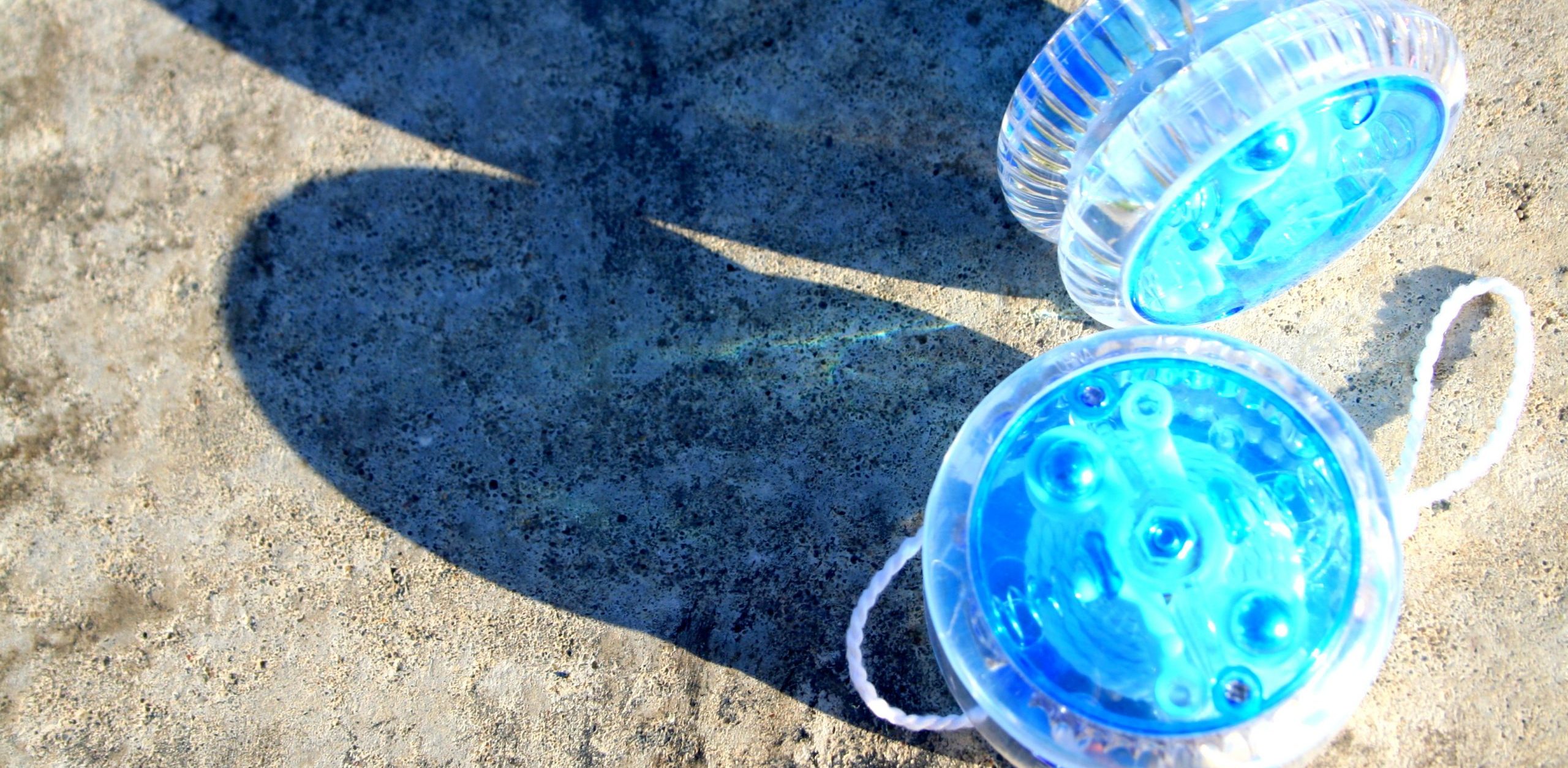Best Chlorine Tablets For Vinyl Pools : Review And Buying Guide
Brandon Forder May 3, 2024 11:13 PM
Chlorine is essential for keeping your vinyl pool clean. However, there is a risk that the vinyl liner of your pool will disintegrate if you use the wrong sort of chlorine.
You may use the information in this article to confidently choose the right chlorine product for your vinyl liner pool. Okay, so let's begin!

Compare Products
- SCORE9.4
- BrandHTH
- Prime
- SCORE9.2
- BrandHTH
- SCORE9.0
- BrandHTH
- SCORE9.0
- BrandHTH
- SCORE9.0
- BrandClorox Pool&Spa
- Prime
- SCORE9.0
- BrandHTH
- SCORE9.0
- BrandHTH
- SCORE9.0
- BrandHTH
- Prime
- SCORE9.0
- BrandClorox Pool&Spa
- Prime
- SCORE8.8
- BrandHTH
- SCORE8.4
- BrandCLOROX Pool&Spa
- Prime
Last update on 2024-05-03 / Affiliate links / Images, Product Titles, and Product Highlights from Amazon Product Advertising API
Type
Pool and spa owners can choose from a variety of chlorine treatments, including sodium hypochlorite, lithium hypochlorite, calcium hypochlorite, dichlor, and trichlor. The most popular therapy is trichlor.
When calcium hardness causes problems for the pool's filtration system, sodium hypochlorite can be used to disinfect the water. However, it is not the best at destroying algae or germs because it only contains about 10 to 12 percent chlorine. Chlorine treatments based on sodium hypochlorite are also not stabilized, making them susceptible to breakdown in sunlight and potentially leading to the formation of toxic chloramines that can lead to red, itchy eyes and skin irritation.
Keeping the chemical equilibrium of the pool water is easier with lithium hypochlorite because of its higher range of 28 to 35 percent chlorine. Lithium hypochlorite, however, is not stabilized and can be damaged by exposure to sunlight.
Another kind of pool treatment that isn't stabilized is calcium hypochlorite. Calcium hypochlorite has a higher proportion of chlorine (around 65) and is therefore more effective than sodium hypochlorite and lithium hypochlorite, although it is still susceptible to degradation from ultraviolet light and chloramine formation.
To make a stabilized chlorine treatment that is resistant to UV radiation and inhibits the breakdown of chlorine molecules and the release of chloramines into the pool, cyanuric acid is added to dichlor chlorine. Products in the dichlor category tend to be granular rather than tablet form, and their chlorine concentrations sit between 56% and 62%.
Trichlor is the most often used form of chlorine for pool sanitation. Tabs of solid trichlor chlorine, another kind of stabilized chlorine, can contain as much as 90% chlorine. Chloramine generation can be reduced by using a tablet that, once dissolved in pool water, is resistant to deterioration from sunlight and UV light.
Size
Regularly available chlorine pills range in length from 1 inch to 3 inches.
One-inch chlorine tablets are convenient for use in smaller pools, hot tubs, and spas because of the speed with which they dissolve and the amount of chlorine they emit. However, pools greater than 5,000 gallons will render the tablets useless.
Large pools benefit most from chlorine tablets measuring 3 inches in diameter because a single tablet can often disinfect 5,000 gallons of water. More than one chlorine tablet can be used for pools larger than 5,000 gallons, although 3-inch pills take significantly longer to dissolve.
Pick the proper size for the pool because both can be used in skimmers, floating chlorine dispensers, and automatic chlorine dispensers.
Dissolving Speed
The rate at which a chlorine tablet dissolves affects the tablet's effectiveness and the water it disinfects. There are several elements that affect how quickly a chlorine tablet dissolves in water, including the application method, the average water temperature, the water pressure, the size of the tablet, the kind of pool water, the available filtering system, and many more. It's a good rule of thumb to keep in mind that a chlorine tablet that's three inches long would dissolve at a significantly slower rate than a tablet that's only one inch long would in the identical circumstances. It's important to note that using a floating dispenser or not can affect how quickly the chlorine tablets dissolve. A floating dispenser could reduce the total dissolving time, but the chlorine concentration could vary from one area of the pool to another. Automatic dispensers are preferable since they can dissolve chlorine pills in as little as two to five hours, depending on their size. These dispensing machines are flexible, allowing you to modify the speed to meet your needs.
Quantity
There is no universally applicable formula for determining the total number of chlorine pills required for a given pool. The number of chlorine pills your pool needs will vary depending on factors such as the pool's size, the type of water used, and even the weather. Checking the pool's health using a pool test kit will give you an accurate sense of how much chlorine content you need. With the information you gain from this kit, you'll be able to properly assess the pool's pH and chlorine levels and add the appropriate amount of chlorine tablets. The ideal range for a swimming pool's pH is between 7.2 and 7.8, whereas the ideal range for chlorine concentration is between 1 and 3 parts per million. The size of the pool is another factor that might help determine how much chlorine is needed. A one-inch tablet is sufficient for disinfecting 350 liters of water. But for pools between 5000 and 10000 gallons, you'll need tablets measuring 3 inches in diameter; the quantity of tablets you'll need may vary based on pool size and how often you treat the water.
Stabilized vs. Unstabilized Chlorine
You should pick between unstabilized chlorine and stabilized chlorine based on the sort of pool you have and when you plan to add chlorine. I therefore made sure to provide choices that will appeal to both audiences. Read my complete post on the subject of unstabilized chlorine vs. stabilized chlorine to learn more about the fundamental distinctions between the two.
Effectiveness & Ability to Spread
In addition to being convenient, chlorine pills ensure that your pool is always properly chlorinated. I checked each tablet to ensure that it simply dissolving and spreading around your pool.
Price
There is not much of a quality difference between most chlorine tablets. Therefore, cost should play a significant role in your quest; I know it had a role for me. Because of their exorbitant prices in relation to the quality of the product they provide, I had to reject numerous popular brands.
Can Chlorine Tablets Damage Pool Liner?
Using chlorine tablets to chlorinate your pool is a cost-effective option. But what about the pool liner? Can those tablets hurt it?
Tablet forms of chlorine, such as dichlor and trichlor, should be kept away from vinyl liners to prevent damage. Tablets of chlorine bleach often have a very high chlorine content. This causes an increase in chlorine levels, which can bleach and damage the vinyl used in the liner, drastically shortening its lifespan.
Adding chlorine tablets to a chlorinator or chlorine feeder is the most effective method of using chlorine in a vinyl liner pool. That way, the chlorine is delivered gradually and safely without their ever touching the liner.
In addition, you shouldn't just toss chlorine tablets into the water. Why? If you drop the tabs into your pool, they will sit there and cause a chemical burn on the pool's bottom. The liner's lifespan is often shortened by a few years due to bleaching and weakness.
Chlorine floaters are another item you should stay away from. Floaters are great for floating around the pool, but they may be a pain if they end up in a tight spot. If this occurs, the pool's liner will be exposed to a high quantity of chlorine, which is obviously bad news.
Can I Use Cal-Hypo Chlorine in Vinyl Liner Pool?
If your pool has a vinyl liner, you shouldn't use calcium hypochlorite. Extremely potent chlorine, Cal-Hypo. In addition, it takes a long time to dissolve in water.
The liner will deteriorate faster if the chlorine is allowed to remain at the pool's base for an extended period of time. Bleaching the liner and causing a "chemical burn" are both possible outcomes of exposure to such a high concentration of chlorine.
Cal-Hypo, however, performs best on pools made of gunite, concrete, or plaster.
Don't freak out too much if you've been taking Cal-Hypo. The next time around, be sure to switch out the chlorines. Brush the walls and floor to disperse it if it has settled to the bottom of your pool. This will prevent anything from sticking to the surfaces or settling into the grooves of your vinyl liner.
If you have a vinyl liner pool, you should treat it with DI-CHLOR or liquid chlorine.
How many chlorine tablets do I need every week?
Chlorine tablet requirements are highly variable and are based on factors such as pool size, frequency of use, and pool type. In order to maintain cleanliness and safety in public pools, chlorine must be added at regular intervals. It is recommended to add at least one 3-inch chlorine tablet weekly to a regular public pool with 5,000 gallons of water. However, larger pools (10000 or 12000 gallons of water) may require 2 or 3 3-inch chlorine tablets weekly.
Where should I store extra chlorine tablets?
When dealing with pool chemicals like chlorine, safety should be your top priority. Keep the excess chlorine pills in a secure location that is out of the reach of youngsters. Tablet forms of chlorine often have a long shelf life, sometimes as much as five years. Because they are sealed in plastic before shipping, you don't even have to worry about them getting crushed in your medicine cabinet. However, the storage temperature should still be taken into account and maintained at a level of between 50 and 70 degrees Fahrenheit.
One of the first things you should do if you want to take good care of your pool and ensure it is clean and safe for your family is to purchase a container full of chlorine tablets. By maintaining a particular level of chlorine in your pool, you can ensure that any bacteria, algae, insects, or other potentially dangerous organic matter in the water is eliminated.
However, you will need to keep an eye out for the top chlorine tablet solutions on the market at the moment and make a choice based on the data you find. Good thing for you, we've already done the research and compiled a list of the top-rated chlorine pill brands on the market today. Each of our recommendations comes with a brief evaluation to help you better understand the product before you buy it. To aid you with your quest, we have included a buying guide for the top-rated chlorine tablets.

























